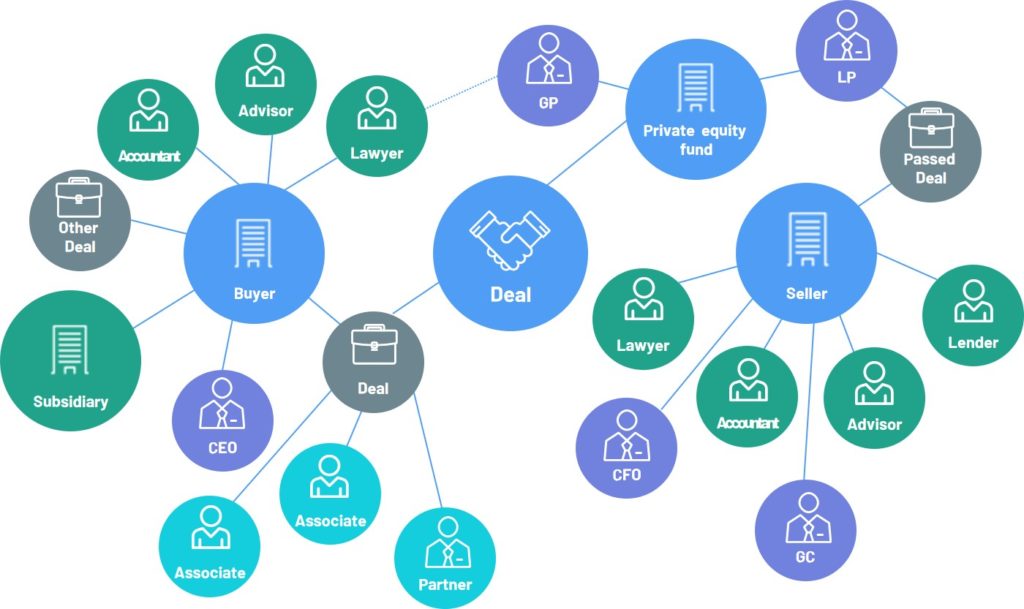We get alot of questions from investors and bankers considering Salesforce and DealCloud as their institutional CRM. Our response?: CRM vendors provide either a generic platform or one that’s built for a specific purpose. Generic CRM platforms are designed for broad swaths of use cases; they’re typically deployed within sectors with minimal demand for industry-specific software tools and features. By contrast, purpose-built CRM solutions provide customized tools and features to meet the unique and highly specific needs of certain industries.
Choosing between a generic or purpose-built platform requires careful consideration. The underlying architecture will determine a wide host of factors that ultimately drive how well the platform delivers against the needs of the organization — everything from how reports are generated, how data is tagged, and how integrations and APIs perform. Understanding the tradeoffs should be a key factor in your decision-making process.
For instance, most generic CRMs are designed to track linear one-to-one relationships. This may be sufficient for a wide gamut of industries, but wholly inadequate for achieving the coverage required in the highly dynamic, complex, and relationship-driven capital markets industry (as seen below):

A prominent generic CRM provider, Salesforce, recently updated its platform to what is called “Lightning.” That new system, however, has posed lots of logistical challenges for users in the capital markets industry who are attempting to migrate from Salesforce Classic to Salesforce Lightning. Implementing and driving adoption for new technology platforms into large, global financial services organizations is hard enough as it is without mandatory updates to the core technology. Because of this, we’ve compiled the below tips for helping technologists and dealmakers alike navigate these changes effectively.
What to expect when navigating a forced migration process
Forced migrations can cause massive business interruptions, including interruptions to any customizations or unique configurations your firm has implemented into the platform. Switching to Salesforce Lightning can cause problems with your customizations, they might not all migrate properly and if they do it can cause an “overload of technical debt, feature redundancy, and even performance issues.” All of the work that you put in to customize a platform that works best for your firm could potentially be in jeopardy when you’re forced to migrate or upgrade.
Secondly, migrations can cause performance issues that can slow down efficiency despite the fact that the migration is towards an updated and enhanced user interface. “Lightning migration without proper analysis can be counterproductive. This might lead to performance issues, such as low responsiveness of pages, higher load time, complexity in navigation through the forms and even overall scalability.” These are scenarios that highlight the key differences between a platform like Salesforce and like DealCloud. When these types of outcomes happen, progress and productivity can be slowed across the global team – especially when teams are working remotely and are unable to access the IT team through in-person conversations.
How to assess the migration within your capital markets firm
Furthermore, capital markets organizations – comprised of business managers, end users, and IT leadership – need to be prepared for broad-based confusion. As with any technology, as new functions and features are introduced to users, there may be confusion or distraction from the core use cases that the technology solves for. When you have so many options, it can become hard to know which features are essential and which are extraneous, and this can cause overall frustration, which can ultimately affect the overall user adoption and workflow efficiency. Salesforce and DealCloud should both have technology blueprints available to your firm so that you can anticipate important changes to your firm’s data infrastructure.
Put simply, capital markets firms should consider selecting technology partners that do not impose massive technology upgrades and overhauls because sometimes these changes can affect efficiency, adoption, and team. Additionally, should these kinds of migrations and updates be required, it’s important that firms consider partnering with a provider who has industry expertise. After all, nothing is worse than calling a customer support representative about an issue with the deal pipeline dashboard and have them not know the important difference between IOI and LOI.
There’s no doubt about it: the migration from Salesforce Classic to Lightning is a big change for capital markets firms, especially those in the middle market who do not have staff dedicated to technology transformation. These kinds of processes might be too big for your teams to manage and, therefore, the team can end up less efficient and less successful in the long run. From low performance levels to decreased team efficiency, migrating from Salesforce Classic to Lightning can cause issues that slow down your firm’s workflow. If you’re a firm still considering the migration from Classic to Lightning, it may be a good time to consider a new system all together.
How to access best-in-class advice and consultancy to support your decision-making
If you personally, or if your entire firm, is going through or anticipating the pain of upgrading and migrating to a new version of your existing software, DealCloud is here to help. In fact, our team of experts has successfully migrated over 400 capital markets firms from a less-than-ideal generic CRM platform like Salesforce to DealCloud. Talk to our team to learn more about your options and the purpose-built solutions available to you and your firm.
